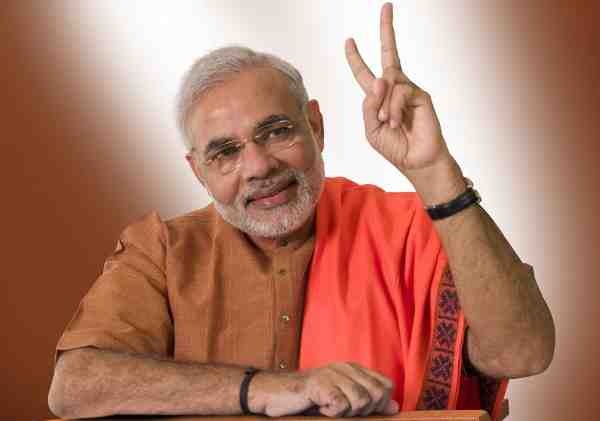10 Reasons Why Social Media Doesn’t Help
Online marketers believe that currently over 500 million global consumers are connected with various social media sites. And they can be potential buyers for different brands. However, there’s a marked difference between the rhetoric and reality. Social media isn’t helpful in most cases. Why?
By Rakesh Raman
Marketers who think that social network users can become useful consumers are living in a perpetual state of illusion. Most of these users are typically social; they’re hardly interested in any commercial activity. And marketers are pushing them farther away by taking ordinary steps on online social platforms while promoting their offerings.
[ Also Read: How to Measure ROI on Social Media Marketing ]Here are these 10 qualitative reasons why social media doesn’t prove to be effective for various promotional campaigns:
1. Messaging: In most cases, brand promotion messages are not quite succinct, they’re not clear. On social media sites, you need to convey the maximum using minimum number of words. Even the placement of words in a message is important. This requires totally new skills of message writing, which most companies don’t have. As a result, they’re not able to attract and retain online eyeballs.
2. Power of Content: Social media can’t be effective if your message is not supported by powerful backend content. Good movies, for example, are able to leverage social messaging more effectively because their daily messages are supported by online videos related to interviews with leading actors and directors, trailers, behind-the-scene sequences, and so on. But many companies in other market verticals like Financial Services, Technology, etc. only convey standalone information, which is not enough to pull off meaningful results on social networks.
3. Brand Support: Social media hardly helps if the brand you’re trying to promote is not powerful enough. For example, a big-budget Hollywood movie or a branded video game or even one of the two leading cola brands can leverage social media more effectively than, say, a laptop or a TV that can’t have any brand differentiation.
4. Catalytic Support: Social media can’t be a silver bullet solution for all your promotional needs. It can only be a catalyst that can add value to your traditional or new-media ad campaigns. It’ll be a big mistake if you think only social media can help you achieve results equivalent to ad campaigns.
5. Information Freshness: Companies that create their presence on social media sites need to communicate frequently with users. For this, if the information is not fresh, it’ll be extremely difficult to build online communities, as users won’t have any interest in your messages. But in most cases, there is neither brand-related original content nor user-generated content. So social media presence is not productive enough.
6. Content Customization: Most social media efforts fail because companies try to communicate what they have; not what users want. Your content needs to be customized for the communities that you’re trying to target. Otherwise, you’ll end up promoting dog food among cat owners. Obviously, results will be discouraging.
7. Diversion: Social media users are too focused. They’re not supposed to be dragged from the main user screen (say, ‘News Feed’ in the case of Facebook) where messages are flowing like a stream. For example, Groups and Pages on Facebook are hardly effective. Companies create them for their own satisfaction. They can initially rope in some users also. But they don’t visit these external pages subsequently. So the content on most such allied pages is stale.
8. Forced Marketing: The moment you start any proactive marketing like sending unsolicited messages to users to join groups or pages on social media sites, it boomerangs. Most users would scoff at such attempts. It has to be with subtle messaging without disturbing the users.
9. Impact Analysis: There’s no empirical method to estimate the impact of social media promotions on your business growth, though some social media monitoring tools – which are too complex – give you raw reports about the coverage of your brands at various sites. In the absence of clear-cut methods to estimate the return on investment, companies don’t run social media campaigns with full dedication.
10. Backend Hub: Most social media promotions are not supported with strong backend hubs like a vibrant and powerful site on the company or the brand that they’re trying to promote. Isolated brand or corporate messaging can’t be useful to gain competitive advantages while using social networks.
Believe me, social media is an extremely tricky ballgame, which can be more harmful than helpful for your brand objectives if your product promotion and messaging approach is wrong.
By Rakesh Raman, the managing editor of Raman Media Network.
💛 Support Independent Journalism
If you find RMN News useful, please consider supporting us.





Finally, someone who agrees with what I’ve been saying about Social Media outlets like Facebook. Don’t get me wrong, I like and use FB, but as far as promoting anything, I feel like an Amway rep trying to sell to friends and family!
The more Friends you have, the faster a post flies by, so the more often you need to post and end up looking and feeling like a spammer. And who are these Friends, anyway? They may be fans, but are they buyers?
Every successful marketer I know on FB, created their customers through normal funnels, then Friended them on FB. I don’t know any that converted Friends to customers!